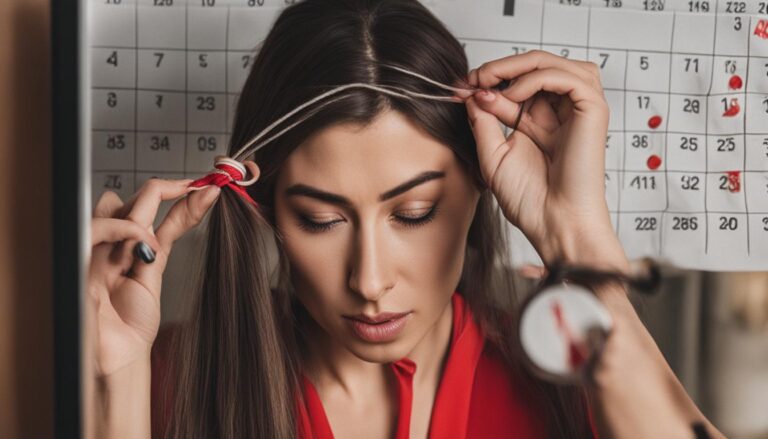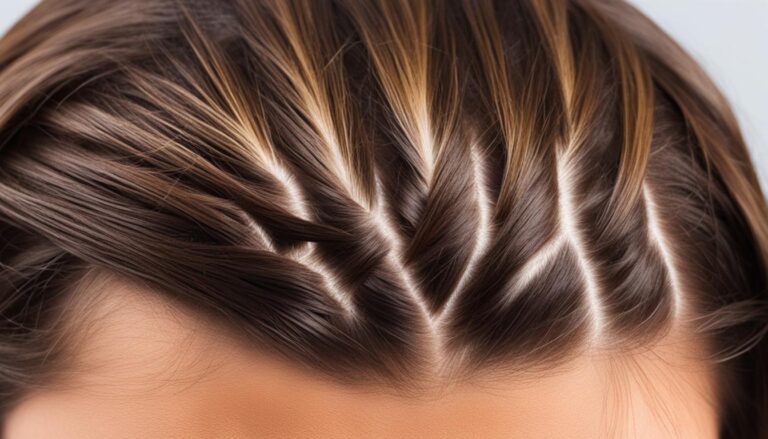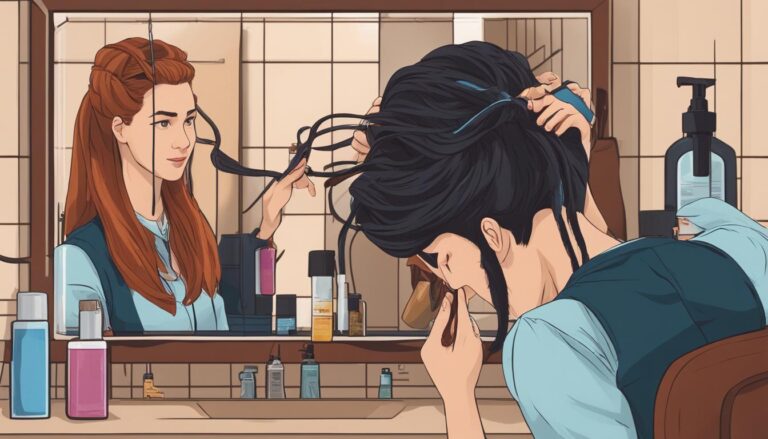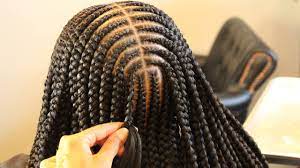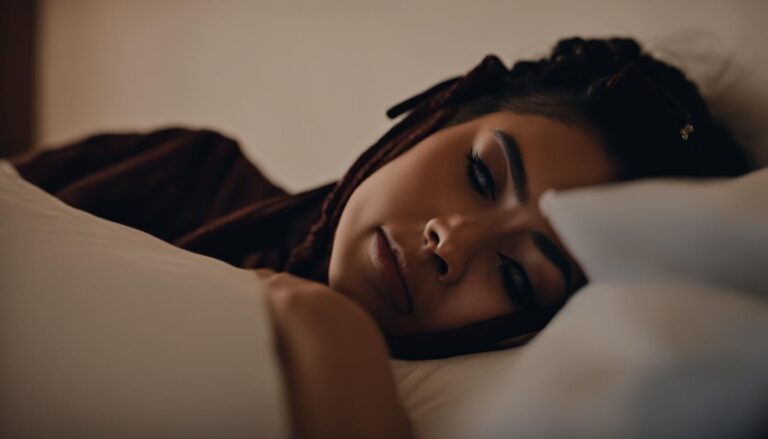Does Lack of Vitamin D Cause Hair Loss?
Hair loss can be caused by various factors, including genetics, hormones, stress, and poor nutrition. One nutrient that has been linked to hair loss is vitamin D. Vitamin D deficiency can lead to inadequate hair follicle growth, resulting in hair loss. It is important to maintain adequate levels of vitamin D through sun exposure, diet, and supplementation to support healthy hair growth.
Key Takeaways:
- Vitamin D deficiency can contribute to hair loss by inhibiting hair follicle growth.
- Adequate levels of vitamin D are important for maintaining healthy hair thickness and preventing premature hair loss.
- Sun exposure, consumption of vitamin D-rich foods, and supplementation can help maintain optimal vitamin D levels for healthy hair growth.
- Vitamin D deficiency can be diagnosed through blood tests, and treatment usually involves vitamin D supplementation.
- In addition to addressing vitamin D deficiency, it is important to address nutrient deficiencies and practice good hair care habits for overall hair health.
The Role of Vitamin D in Hair Health
When it comes to hair health, vitamin D plays a vital role in ensuring optimal growth and maintenance. Not only is this essential nutrient involved in the creation of new hair follicles, but it also supports the overall health of the hair. Adequate levels of vitamin D can contribute to maintaining hair thickness and preventing premature hair loss.
Research has shown that vitamin D is not only responsible for maintaining healthy bones and supporting the immune system, but it also regulates cell growth and division. This means that it plays a crucial role in the growth of new hair follicles, which are necessary for healthy hair growth and maintenance.
Ensuring optimal levels of vitamin D can be achieved through various means. Spending time in the sun is an effective way to increase vitamin D production in the body. Additionally, consuming foods rich in vitamin D, such as fatty fish, eggs, and fortified dairy products, can provide a dietary source of this essential nutrient. In cases where sun exposure and dietary intake are insufficient, vitamin D supplementation may be recommended to maintain adequate levels for optimal hair health.
Vitamin D Deficiency and Hair Loss
Vitamin D plays a crucial role in the health of our hair, and a deficiency in this essential nutrient can contribute to hair loss. When the body lacks adequate levels of vitamin D, it can result in a shortage of keratinocytes, which are responsible for hair growth. Various factors can contribute to a deficiency in vitamin D, including a lack of sun exposure, a poor diet, certain medications, and underlying medical conditions.
Preventing hair loss related to vitamin D deficiency involves maintaining optimal levels of the vitamin through sun exposure or supplementation. Spending time outdoors can help your body produce vitamin D naturally, but it’s important to protect your skin from harmful UV rays. Alternatively, vitamin D supplements can be taken to ensure adequate levels. It’s always best to consult with a healthcare professional to determine the appropriate dosage.
Additionally, a well-balanced diet that includes vitamin D-rich foods can support healthy hair growth. Some examples of vitamin D-rich foods include fatty fish like salmon and mackerel, fortified dairy products, egg yolks, and mushrooms. Including these foods in your diet can help boost your vitamin D levels and promote stronger, healthier hair.
Other Nutrient Deficiencies and Hair Loss
<!–
–>
Apart from vitamin D deficiency, insufficient levels of other essential nutrients can also contribute to hair loss. Two such nutrients are vitamin B12 and iron. Let’s explore their role in maintaining healthy hair and how deficiencies in these nutrients can lead to hair loss.
Vitamin B12 Deficiency
Vitamin B12 is crucial for the production of red blood cells and DNA synthesis. These processes are fundamental for maintaining a healthy scalp and hair growth. When there is a deficiency of vitamin B12, it can result in anemia and poor oxygen supply to the hair follicles. This can contribute to hair thinning and loss. Vegetarians and vegans, as well as individuals with certain gastrointestinal conditions, are at a higher risk of vitamin B12 deficiency.
Iron Deficiency
Iron plays a vital role in the production of hemoglobin, a protein that carries oxygen to the body’s tissues, including the hair follicles. Insufficient iron levels can cause decreased oxygen supply to the hair follicles, leading to weakened hair growth and eventual hair loss. Women, especially during menstruation, are more prone to iron deficiency.
To address vitamin B12 and iron deficiencies and promote healthy hair growth, it is important to incorporate foods rich in these nutrients into your diet. This includes consuming sources of vitamin B12 such as fish, meat, eggs, and dairy products, or considering vitamin B12 supplementation if necessary. Iron-rich foods like lean meats, beans, fortified cereals, and leafy green vegetables can help boost iron levels. If needed, iron supplements can also be taken under the guidance of a healthcare professional.
While addressing nutrient deficiencies is important for hair health, it is crucial to consult with a healthcare professional to determine the underlying cause of hair loss and receive appropriate diagnosis and treatment. They can provide personalized recommendations and guidance to optimize nutrient intake and promote healthy hair growth.
Diagnosis and Treatment of Vitamin D Deficiency
Diagnosing vitamin D deficiency is a crucial step in addressing hair loss and promoting overall health. A blood test that measures the levels of 25(OH) vitamin D can accurately determine if you have a deficiency. This test is usually performed by a healthcare professional and provides valuable information about your vitamin D status.
If the test results indicate a deficiency, your healthcare provider will recommend a suitable treatment plan. The most common approach to treating vitamin D deficiency is supplementation with vitamin D3. The dosage and frequency of supplementation will depend on your individual needs and the severity of your deficiency.
To ensure optimal absorption of vitamin D, it is recommended to take the supplements with meals that contain healthy fats. This helps facilitate the absorption of the vitamin into your bloodstream. Regular monitoring of your vitamin D levels is essential to determine the effectiveness of the treatment and ensure that you are not at risk of hypervitaminosis D, which is an excess of vitamin D in the body.

The Role of Vitamin D Supplementation
Vitamin D supplementation plays a crucial role in addressing deficiencies and promoting healthy hair growth. It helps ensure that your body receives an adequate amount of vitamin D, especially if you are unable to obtain sufficient levels through sun exposure or diet alone.
Supplementation is particularly important for individuals who live in areas with limited sunlight, have a darker skin tone, or follow strict dietary restrictions that may result in insufficient vitamin D intake.
When choosing a vitamin D supplement, it is important to consult with your healthcare provider to determine the appropriate dosage and form of vitamin D that suits your needs. They will consider factors such as your age, overall health, and specific deficiencies to provide you with personalized guidance.
In addition to supplementation, it is beneficial to incorporate other sources of vitamin D, such as sunlight and vitamin D-rich foods, into your daily routine. This comprehensive approach can help optimize your vitamin D levels and support healthy hair growth.
Lifestyle Practices for Healthy Hair
When it comes to maintaining healthy hair, it’s not just about addressing nutrient deficiencies. Adopting good hair care practices can go a long way in preventing hair loss and promoting overall hair health. Here are some lifestyle practices you can incorporate into your daily routine:
1. Be gentle with your hair
Avoid excessive pulling or tension on your hair, as this can lead to breakage and hair loss. Instead, handle your hair with care and use a wide-toothed comb or a brush with soft bristles to minimize damage. When towel drying your hair, pat gently instead of rubbing vigorously to prevent unnecessary stress on the strands.
2. Choose gentle and natural hair care products
Opt for hair care products that are free from harsh chemicals, sulfates, and parabens. These ingredients can strip the hair of its natural oils and cause dryness and damage. Look for products that are specifically formulated to nourish and strengthen the hair, promoting healthy growth.
3. Protect your hair
Shield your hair from environmental factors that can cause damage, such as excessive exposure to the sun, heat styling tools, and chlorine from swimming pools. Wear a hat or use a hair sunscreen when spending time outdoors and use heat protectant sprays or serums before using hot styling tools. Additionally, wearing protective styles like braids or buns can help minimize exposure and reduce the risk of breakage.
4. Maintain a balanced diet
A balanced diet rich in vitamins, minerals, and antioxidants is essential for healthy hair growth. Incorporate foods that are high in vitamin D, such as fatty fish, fortified dairy products, and eggs. Additionally, include foods rich in other important nutrients for hair health, such as vitamin B12, iron, zinc, and biotin. Remember to stay hydrated by drinking an adequate amount of water daily.
By following these lifestyle practices, you can support healthy hair growth and minimize the risk of hair loss. Remember that consistency is key, and it may take time to see the results. If you’re experiencing significant hair loss or have concerns about your hair health, it’s always best to consult with a healthcare professional for personalized guidance.
Conclusion
In conclusion, maintaining adequate levels of vitamin D is essential for preventing hair loss and promoting healthy hair growth. Vitamin D deficiency has been linked to hair loss, as it can result in inadequate hair follicle growth. To address this deficiency, it is important to ensure sufficient sun exposure, incorporate vitamin D-rich foods into your diet, and consider vitamin D supplementation.
However, it’s important to note that vitamin D is not the only nutrient that affects hair health. Other deficiencies, such as vitamin B12 and iron, can also contribute to hair loss. Therefore, it is crucial to address any nutrient deficiencies through dietary changes and supplementation.
In addition to addressing nutrient deficiencies, practicing good hair care habits is vital for overall hair health. Avoid excessive pulling or tension on the hair, opt for gentle and natural hair care products, and protect your hair from damage. Spending time outdoors daily and following a well-balanced diet that includes vitamin D-rich foods can further support healthy hair growth.
Consulting with a healthcare professional can provide personalized guidance and recommendations for addressing vitamin D deficiency and promoting healthy hair growth. They can help monitor your vitamin D levels and ensure you are on the right track to maintaining optimal hair health. By taking these steps, you can prevent hair loss and promote healthy hair growth for the long term.
FAQ
Does lack of vitamin D cause hair loss?
Vitamin D deficiency has been linked to inadequate hair follicle growth, which can result in hair loss. It is important to maintain adequate levels of vitamin D to support healthy hair growth.
What role does vitamin D play in hair health?
Vitamin D is involved in the creation of new hair follicles, which are essential for hair growth. Adequate levels of vitamin D can help maintain hair thickness and prevent premature hair loss.
How does vitamin D deficiency contribute to hair loss?
Research suggests that low levels of vitamin D can lead to a lack of keratinocytes, which are important for hair growth. Factors such as lack of sun exposure, poor diet, certain medications, and underlying medical conditions can contribute to vitamin D deficiency.
Can other nutrient deficiencies cause hair loss?
Yes, deficiencies in nutrients like vitamin B12 and iron can also contribute to hair loss. Vitamin B12 is essential for DNA synthesis and red blood cell production, while iron is necessary for hemoglobin production and oxygen transport to the hair follicles.
How is vitamin D deficiency diagnosed and treated?
Vitamin D deficiency can be diagnosed through blood tests that measure the levels of 25(OH) vitamin D. Treatment typically involves supplementation with vitamin D3, with dosages and frequency determined based on individual needs and blood test results.
What are some lifestyle practices for healthy hair?
Practicing good hair care habits can help prevent hair loss and promote healthy hair growth. This includes avoiding excessive pulling or tension on the hair, avoiding tight hairstyles, using gentle and natural hair care products, and protecting the hair from damage.


